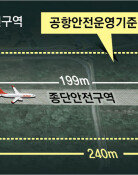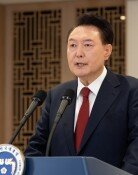Can’t you hear young people crying out?
Can’t you hear young people crying out?
Posted March. 18, 2021 07:24,
Updated March. 18, 2021 07:24
Statistics Korea announced on Wednesday that the number of the employed in February this year decreased by 470,000 compared to the same month last year. The figure has been on the decline for 12 consecutive months from March last year, which is the second-longest record since the 16-month decline after the 1997 financial crisis. As the monthly decrease reduced a bit from 980,000 in January, Deputy Prime Minister and Minister of Economy and Finance Hong Nam-ki commented that difficulties in the labor market are noticeably getting better.
Looking closely at the details of employment, however, his comment is far from the reality on the ground. The number of the employed decreased by 380,000 for those under 40 years old while it rose by 210,000 for those aged 60 or older. It is the result of the resumption of the government’s employment projects for the elderly, which were temporarily halted due to cold waves in winter. This is utterly complacent and irresponsible for the Minister of Economy and Finance to say that the job market has gotten better based on the statistics reflecting an increase in part-time jobs for the elderly while the critical group of the economy is struggling.
In addition, there are 3.32 million people who have given up on finding jobs because it was too hard and simply did not look for jobs. These are considered economically inactive populations and not counted toward the unemployed. Among these practically unemployed people hidden from statistics, about one million are young people.
Despite such circumstances, the government policies to create jobs for young people are still superficial. The government set 567.6 billion won in the fourth supplementary budget for digital job creation for young people and support for young people who have given up on finding jobs. For the former, only 33.6 percent of the budget was executed last year as there wasn’t enough demand from young people. Regarding the latter project, which is to provide the grant of 200,000 won to the economically inactive young people when they receive consulting services, its practical benefits are doubtful.
Young people want proper job opportunities, rather than part-time jobs created with a tax or a little bit of grant. However, six out of 10 major companies in South Korea will not hire new employees or have not set recruitment plans yet for the first half of this year. The Bank of Korea pointed to an imbalance between the demand and supply of labor as one of the reasons for unemployment among young people, which means there is a lack of talent needed by companies.
Whenever announcing employment statistics, the government has been blaming COVID-19. It is true that young unemployment has gotten worse as a result of reduced face-to-face service from COVID-19. However, there are structural issues preventing companies from hiring more. Rather than focusing on statistics with superficial policies, the government needs to look closely into structural issues, such as an imbalance between demand and supply, employment environment, and talent development.






